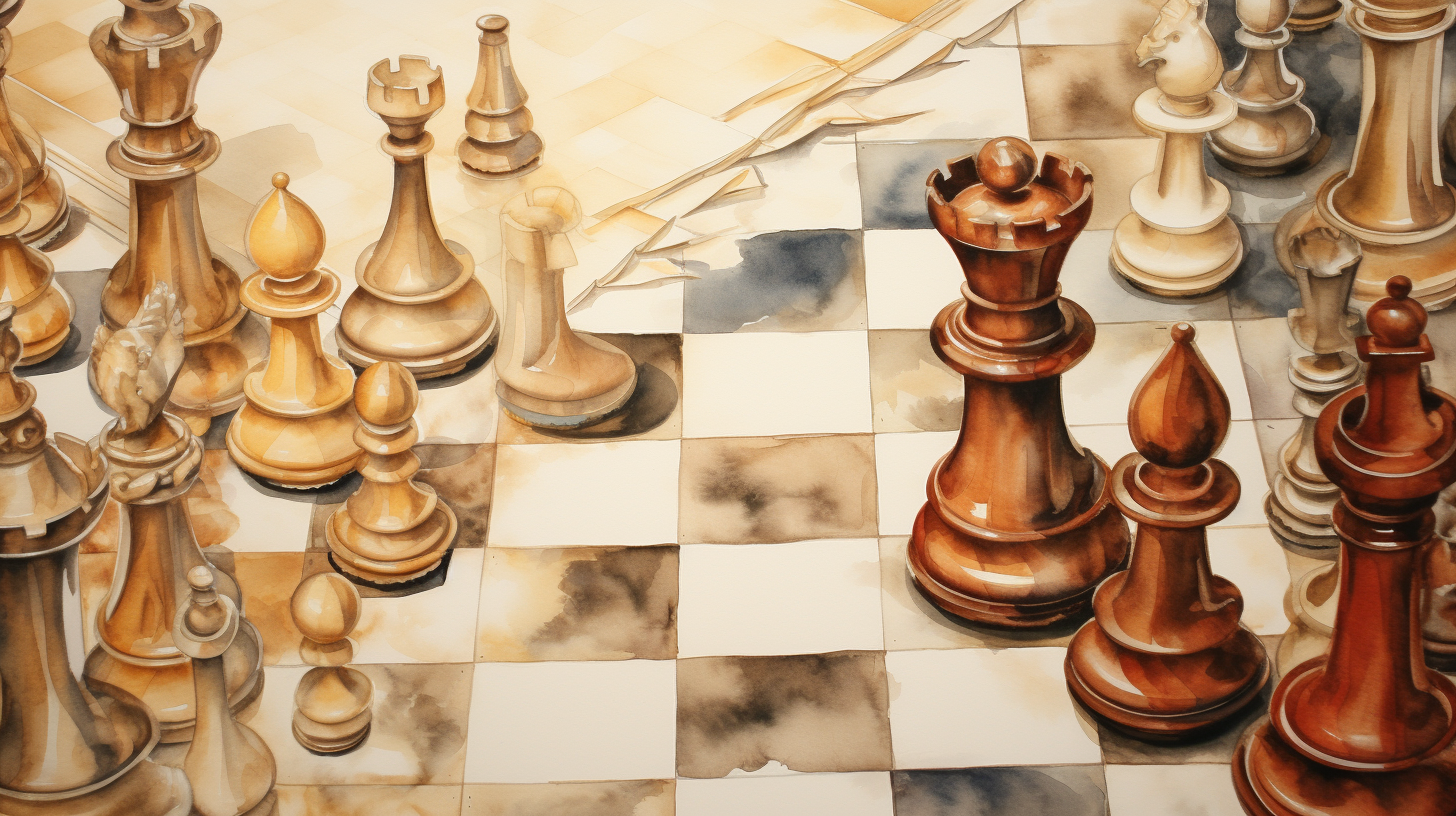What does dreaming about chess mean?
Dreams that involve chess are often rich with symbolism. As a game rooted in strategy, intellect and foresight, chess appearing in a dream frequently reflects situations in waking life that require deep thought and careful planning. It’s a mental game that has long stood as a metaphor for decision-making and long-term thinking. When chess appears in a dream, it may be your subconscious mind’s way of highlighting a complex situation you’re navigating, or perhaps one you’re avoiding.
If you’re the one playing chess in the dream, it might represent your current role in a scenario where precision, timing and patience are essential. It could be linked to your professional life, suggesting that you need to be strategic in your decisions, or it might relate to your personal relationships, indicating that you’re weighing options or considering multiple outcomes before making a move.
The nature of the game in your dream also matters. Was the game calm and controlled, or tense and hurried? A smooth, thoughtful match could suggest that you’re managing your responsibilities well and feeling confident about your choices. Conversely, a chaotic or stressful game might indicate confusion, pressure, or fear of making the wrong move in your waking life.
Seeing a chessboard without actually playing can represent observation or analysis. You may be in a phase where you’re watching events unfold or assessing a situation before acting. It also points to feeling like a bystander in your own life, where decisions are being made around you, not by you.
Your opponent in the dream might symbolise a real-life person or an internal aspect of yourself. Facing someone familiar on the board could mirror conflict or negotiation with that person in reality. Playing against a stranger might signify unknown factors influencing your decisions or even represent your inner critic challenging your confidence.
Dreams of chess can also reveal how you approach life: are you someone who plans several steps ahead, or do you tend to act impulsively? The dream may be drawing attention to your habits of thought and inviting you to consider a more mindful or deliberate path forward.
Common scenarios involving chess and their meaning
Different dream settings and situations involving chess can add layers of meaning. A dream where you are winning a chess match may suggest that you’re feeling in control and confident about a current endeavour. It’s a reflection of your belief in your own ability to think ahead and achieve success, especially in situations that demand patience and mental discipline.
If you dream of losing the game, it could signal self-doubt or concern about making the wrong decision. This type of dream can be a nudge from your subconscious to reassess your strategy and consider whether you’ve overlooked something important in your real-life plans.
Watching others play chess without participating might suggest that you feel sidelined or out of control in a current situation. You may be observing how others manoeuvre and make progress while feeling stuck or unsure of how to engage. Alternatively, it could indicate that you’re in an evaluative phase, learning by watching and gathering insight before stepping in.
Dreams where pieces are missing from the board or scattered could reflect confusion or a lack of clarity about your goals or the resources available to you. The condition of the chessboard often mirrors the structure (or disarray) in your personal or professional life. A broken board or mismatched pieces can indicate that something fundamental in your life needs repair or attention.
Being in a situation where every move you make in the game is blocked or countered might represent obstacles in waking life that seem insurmountable. This can feel frustrating but may also serve as a prompt to look at the situation from a different angle or to seek help from someone more experienced.
If you dream of playing against a computer or automated opponent, it might reflect feelings of impersonality or disconnection in your real-life interactions. You could be dealing with institutions or systems that feel rigid or uncaring, and the dream serves as a metaphor for this sense of emotional distance.
Dreaming of teaching someone else how to play chess might reveal your role as a mentor or advisor in real life. It could point to a sense of responsibility or pride in guiding others through complex situations, helping them develop the skills they need to succeed.
What is the spiritual meaning?
Spiritually, chess in a dream often symbolises the ongoing battle between intuition and intellect. The chessboard becomes a landscape of your inner world where contrasting elements must find balance. Each piece holds its own symbolic meaning. The king, for example, might represent your core purpose or higher self, while pawns could signify smaller, everyday concerns that still carry importance.
This kind of dream may encourage spiritual reflection, urging you to consider whether you’re acting in alignment with your deeper values or merely reacting to external pressures. If your dream felt particularly intense or vivid, it could be calling your attention to a critical decision point in your spiritual journey.
The duality of black and white squares also brings to mind themes of dualism—light and shadow, conscious and unconscious, right and wrong. Spiritually, the dream could be pointing to a need to integrate these aspects within yourself, achieving a more holistic and balanced state of being.
A dream where you master the game or outwit a difficult opponent might reflect spiritual growth or the overcoming of ego. It can be a powerful symbol of progress, indicating that you are beginning to understand the broader patterns at play in your life and moving beyond superficial conflicts.
Sometimes, these dreams can also act as spiritual metaphors for karma and consequence. Each move you make, both in the dream and in life, carries energy and intent, shaping your journey in ways you may not fully see at the time.
The importance of recording your dreams
Taking time to record your dreams is invaluable. It helps capture fleeting emotions, symbols and patterns that offer insight into your inner world. The more consistently you document them, the more clearly your subconscious begins to speak.
Over time, you may uncover themes that shed light on personal challenges or offer spiritual clarity. Writing them down turns vague impressions into something you can revisit and learn from.



